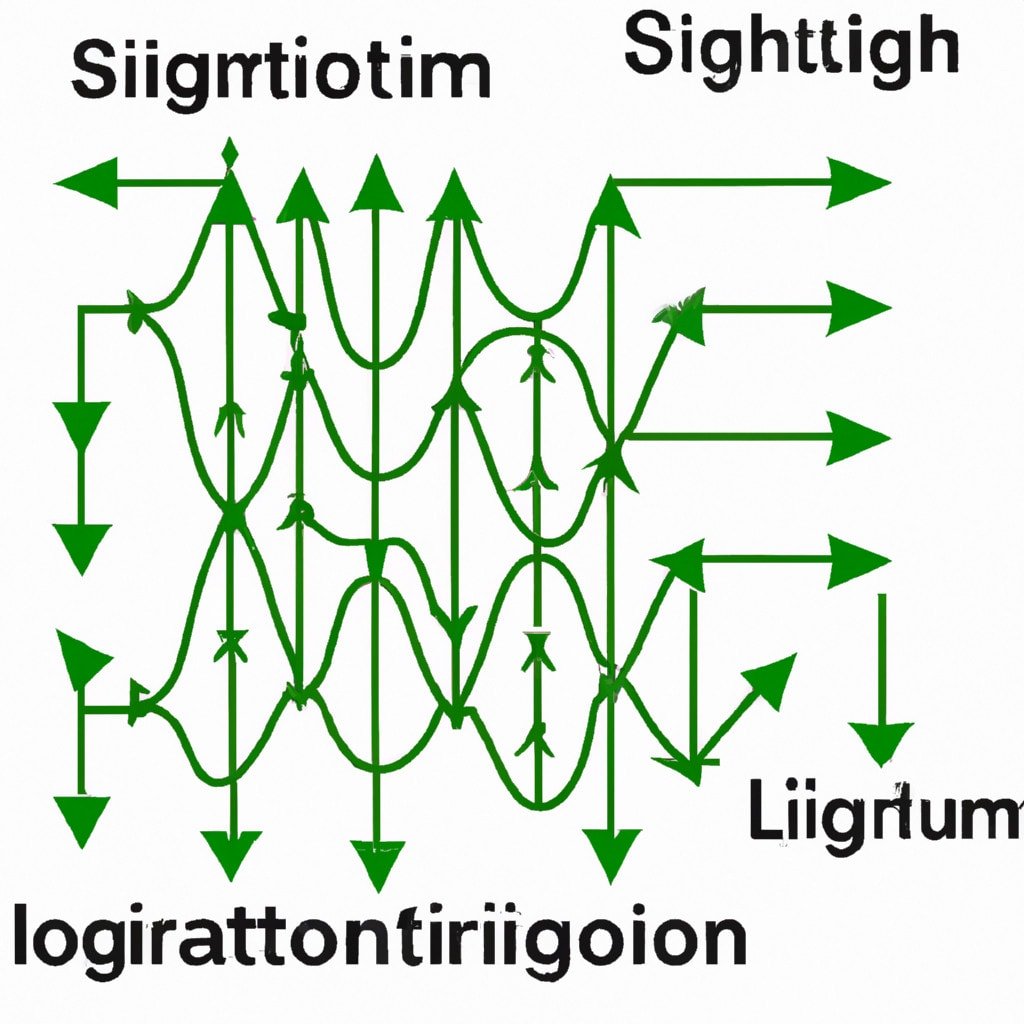Why are algorithms so important in our daily lives? Stick with me, and by the end of this article, you’ll be able to answer this question and understand why algorithms are essential in various fields. But first, let’s dive into what exactly an algorithm is.
Defining An Algorithm
An algorithm is a step-by-step procedure or set of instructions to solve a specific problem or perform a particular task. It’s like a recipe – following the steps in the right order will lead to the desired outcome. Algorithms are used in computer programming, mathematics, and everyday life.
Exploring the Need for an Algorithm
Now that we know what an algorithm is, let’s explore the reasons behind their importance:
1. Efficient Problem Solving
Algorithms help us solve problems efficiently and effectively. The process of creating an algorithm involves breaking down a problem into smaller, more manageable parts. This enables us to tackle complex issues step by step, making it easier to understand and solve them.
2. Faster and Accurate Results
When we use an algorithm, we can obtain faster and more accurate results. In computer programming, the correct algorithm can help a programmer write code that runs efficiently and provides accurate outputs. This saves time, effort, and resources.
3. Easier Decision-Making
In our daily lives, we often use algorithms to make decisions. For example, if we’re trying to figure out the fastest route to work, we might use a navigation app that employs an algorithm to determine the quickest path based on current traffic conditions. By using an algorithm, we can make better-informed decisions that save us time and effort.
4. Standardization and Consistency
Algorithms provide a standardized method of performing tasks, ensuring consistency in the results. This is particularly important in industries where uniformity and precision are vital, such as manufacturing or healthcare. By adhering to a specific algorithm, we can guarantee that the same procedure will yield the same outcome every time.
Real-Life Examples of Algorithms
To further illustrate the need for algorithms, let’s look at some real-life examples:
1. Google Search Engine
When you search for something on Google, the search engine uses an advanced algorithm to find and display the most relevant and high-quality results. This algorithm analyzes various factors, such as keywords, website content, and user behavior, to determine the best matches for your query.
2. Social Media Algorithms
Popular social media platforms like Facebook, Instagram, and Twitter use algorithms to tailor your news feed based on your preferences and online activity. These algorithms monitor your behavior (e.g., the content you like, share, or comment on) to provide a personalized experience, showing you the posts and ads that their algorithm thinks you’ll find most interesting.
3. GPS Navigation Systems
As mentioned earlier, GPS navigation systems use algorithms to determine the most efficient routes based on your location, destination, and current traffic conditions. This saves you time and fuel by helping you avoid traffic jams and choose the fastest path.
Conclusion
So, what is the need for an algorithm? In short, algorithms play a crucial role in making our lives more manageable, organized, and efficient. They help us solve problems, make well-informed decisions, and ensure consistency and accuracy in various fields.
Understanding the importance of algorithms can open doors to numerous opportunities, whether you’re interested in computer programming, mathematics, or simply trying to streamline your everyday life. The next time you encounter a challenge, consider how an algorithm could help you find a solution in a more effective and efficient way.
Instagram’s Algorithm CHANGED! 🥺 The Latest 2023 Instagram Algorithm Update (GET MORE REACH)
Data Structures Explained for Beginners – How I Wish I was Taught
Why is it necessary to utilize an algorithm?
The utilization of algorithms is necessary for several reasons, as they play a vital role in solving problems and simplifying complex tasks in various fields. Here are some key reasons why algorithms are essential:
1. Efficiency: Algorithms provide structured and organized steps to solve a problem, which leads to faster and more efficient solutions. They help identify the best approach to tackle a problem, reducing the time and resources required.
2. Reliability: With a well-designed algorithm, one can expect consistent and accurate results every time it is applied to a problem. This ensures reliability in the execution of tasks, making it an indispensable tool for various industries.
3. Improved Decision-making: In today’s data-driven world, algorithms can process vast amounts of information to make better-informed decisions. They help analyze complex datasets and generate valuable insights that assist in decision-making.
4. Scalability: As the size of the problem increases, algorithms provide a scalable solution to accommodate this growing complexity. They offer a means to handle large-scale tasks that would be challenging or even impossible to manage manually.
5. Automation: Algorithms enable automation of repetitive and mundane tasks, freeing up time and resources to focus on more critical issues. This, in turn, improves overall productivity and efficiency.
6. Applicability: Algorithms are versatile and can be applied to various fields, such as computer science, mathematics, engineering, finance, and healthcare, among others. This broad applicability makes them an invaluable tool for problem-solving and innovation.
In conclusion, utilizing algorithms is necessary to solve complex problems efficiently, ensure reliability, improve decision-making, achieve scalability, automate processes, and benefit from their wide applicability across different fields.
What are the requirements for an algorithm?
An algorithm is a step-by-step procedure to solve a particular problem or perform a specific task. There are several key requirements that an algorithm must meet to be considered valid and efficient. The main requirements include:
1. Unambiguity: Each step of the algorithm must be clear and well-defined. There should be no confusion or multiple interpretations for any part of the algorithm.
2. Input: An algorithm should have one or more input values upon which it will operate. These inputs are necessary to provide the required data for solving the problem.
3. Output: An algorithm must produce at least one output, which is the result or solution of the problem. This output should be directly related to the input values.
4. Finiteness: An algorithm must eventually come to an end after executing a finite number of steps. It should not lead to an infinite loop or never-ending process.
5. Feasibility: The steps in the algorithm must be simple, generic, and achievable using the available resources, including time and computational power.
6. Language-independent: An algorithm should be independent of any specific programming language or platform. It can be expressed in natural language, pseudocode, or flowcharts, and can be implemented in any programming language.
7. Effectiveness: An algorithm should be efficient in terms of time and space complexity. It should minimize the usage of computational resources while providing optimal results.
8. Correctness: The algorithm must be accurate and provide the correct output for all possible input values.
By meeting these requirements, an algorithm ensures that it is robust, efficient, and effective in solving the intended problem.
What is an algorithm and why is it essential?
An algorithm is a step-by-step procedure or set of instructions to solve a particular problem or accomplish a specific task. In the context of computer science, an algorithm is essential as it serves as the backbone for performing complex calculations, data processing, and automated reasoning tasks.
There are several reasons why algorithms are essential:
1. Efficiency: A well-designed algorithm ensures that a task gets completed efficiently, using fewer computational resources like time, memory or network communication.
2. Accuracy: Algorithms provide precise results by following the defined rules and steps, eliminating manual errors and inconsistencies in the process.
3. Reproducibility: An algorithm’s ability to consistently produce the same results under the same conditions makes it reliable and easily reproducible.
4. Scalability: Good algorithms can handle increasing workload or data sizes allowing systems to grow and adapt to new challenges.
5. Automation: Algorithms enable automation of repetitive tasks, freeing up time and resources for more critical activities.
Understanding and designing efficient algorithms is an essential skill for software developers and computer scientists, who work on creating solutions for real-world problems.
What is the significance of utilizing an algorithm for problem-solving?
The significance of utilizing an algorithm for problem-solving lies in its ability to provide a systematic, efficient, and structured approach to solving complex problems.
Firstly, algorithms offer a step-by-step procedure to perform a specific task or to find a solution. This allows the problem to be broken down into smaller, more manageable parts, making it easier to understand and solve.
Secondly, algorithms provide a means of performance optimization. By following a well-designed algorithm, one can achieve better results in terms of time and resource consumption. This is especially important when dealing with large-scale or computationally-intensive problems.
Moreover, algorithms enable reusability and adaptability. Once an algorithm is designed and tested, it can be used in multiple scenarios with minimal modification. This saves time and effort that could be spent on creating new solutions from scratch.
Lastly, the use of algorithms promotes consistency and standardization in problem-solving practices. By adhering to established algorithms, programmers and researchers can collaborate more effectively, ensuring that solutions are reliable and replicable.
In summary, utilizing an algorithm for problem-solving is significant as it provides a systematic approach, optimizing performance, enabling reusability and adaptability, and promoting consistency and standardization in solving complex problems.
What are the main reasons for using algorithms in problem-solving and decision-making processes?
There are several reasons for using algorithms in problem-solving and decision-making processes:
1. Efficiency: Algorithms provide an organized and structured approach to problem-solving, enabling the efficient use of computing resources, such as time and memory.
2. Scalability: Well-designed algorithms can handle large amounts of data and solve problems that would be too complex for manual methods, making them suitable for various applications and industries.
3. Accuracy: Algorithms follow a specific set of rules and procedures, reducing the likelihood of human error and ensuring accurate results in the decision-making process.
4. Repeatability: Since algorithms have clear, predetermined steps, they deliver consistent results when applied to similar problems or datasets. This repeatability allows for a fair and unbiased evaluation of different solutions.
5. Optimization: Algorithms can be designed to optimize specific outcomes, such as minimizing costs, maximizing profits, or balancing trade-offs among competing objectives.
6. Speed: Computers can execute algorithms at extremely high speeds, significantly faster than humans, allowing for quick problem-solving and decision-making in real-time scenarios.
7. Adaptability: Algorithms can be easily adjusted and fine-tuned to accommodate new data, requirements, or constraints, making them highly adaptable to changing situations and environments.
8. Transparency: When using algorithms, it is possible to trace the decision-making process back to the individual steps and rules, providing clarity and accountability for any decisions made.
In conclusion, algorithms play a crucial role in modern problem-solving and decision-making processes, offering efficiency, scalability, accuracy, repeatability, optimization, speed, adaptability, and transparency.
How do algorithms contribute to efficiency and accuracy in various computing applications?
Algorithms play a crucial role in enhancing efficiency and accuracy in various computing applications. An algorithm is a step-by-step procedure to solve a problem or perform a specific task. In computer science, it helps in processing data, performing calculations, and making decisions for automated systems.
Efficiency: Algorithms contribute to efficiency by optimizing resource usage, such as time and memory. A well-designed algorithm reduces the number of operations or steps needed to perform a task, which in turn speeds up the process. Moreover, efficient algorithms minimize the overall computational complexity, ensuring that the application’s performance does not degrade significantly as the data size increases.
Accuracy: An accurate algorithm produces the correct result or provides a close approximation within an acceptable margin of error. In computing applications, this means precise calculations and reliable decisions. Accurate algorithms are essential in fields like scientific simulations, financial predictions, and data analysis, where minor inaccuracies can lead to significant consequences.
In summary, algorithms are the backbone of computing applications, as they ensure efficiency in resource utilization and maintain accuracy in results. The development of efficient and accurate algorithms is a continuous process, with researchers constantly striving to improve existing methods and invent new ones to tackle complex problems in various domains.
What are the specific benefits of implementing well-designed algorithms in complex systems and real-world scenarios?
The specific benefits of implementing well-designed algorithms in complex systems and real-world scenarios are numerous. Some of these benefits include:
1. Efficiency: Well-designed algorithms can significantly reduce the time and computational resources required to process large volumes of data or solve complex problems, leading to more efficient systems and better overall performance.
2. Scalability: Algorithms that are designed with scalability in mind can handle increasing amounts of data or complexity without a substantial decline in performance. This allows the system to grow and evolve as needed without requiring major overhauls.
3. Reliability: A robust algorithm can handle various situations, edge cases, and unexpected inputs more gracefully, ensuring that the system operates reliably even under less-than-ideal conditions.
4. Consistency: Consistent results are essential for maintaining trust in the system and ensuring that the same input will always produce the same output. Well-designed algorithms help guarantee this consistency.
5. Optimization: A good algorithm can adapt and optimize its behavior based on different circumstances, such as varying computational power, network conditions, or user preferences. This flexibility allows the system to provide an optimal experience tailored to individual needs.
6. Maintainability: Implementing well-designed algorithms can make the system easier to maintain, as it tends to be more modular and self-contained. This allows developers to easily modify, fix, or replace individual components without affecting the entire system.
7. Reusability: Well-structured algorithms can be reused across multiple applications, saving time and effort in development and reducing potential errors from duplicated code.
8. Security: An algorithm designed with security considerations in mind helps protect sensitive data, guard against unauthorized access, and reduce the risk of data breaches or other cyberattacks.
9. Transparency: Implementing transparent algorithms can help make the system more comprehensible and interpretable, which is especially important in contexts where the algorithm’s decision-making process needs to be understood or audited.
10. Innovation: Developing novel or improved algorithms can lead to new capabilities, features, or services that drive innovation and open up new opportunities for businesses, researchers, and end-users.
In conclusion, well-designed algorithms play a crucial role in the functioning, efficiency, and overall success of complex systems and real-world scenarios across various industries and domains.




